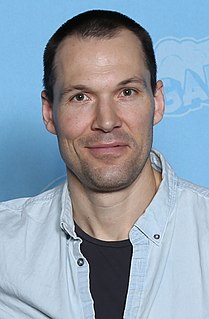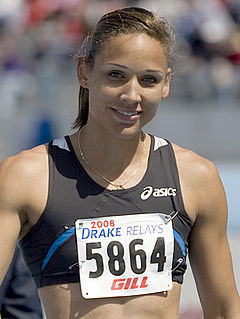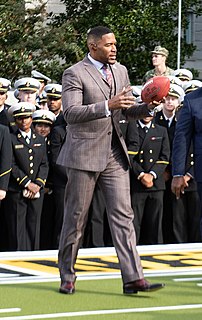A Quote by Gretchen Bleiler
If you don't snowboard a lot, then it's a good idea to go to the gym before you get up on those mountains to make for a better experience. Lots of core exercises and squats and lunges would help work the muscles you'll be using.
Related Quotes
I moved to Switzerland when I was 8, and during our breaks, we'd go to snowboard, and he'd take me to the mountains; we'd take a train. It was kind of crazy, you know. When I think about it, I wake up at 4, take a train to the mountains, sleep in the train and then go snowboard, and then come back. It was quite a mission.
It's tough, you know, when you're thin and you don't put on muscle mass that easily. What you've got to remember is that you really have to eat a lot and you have to work your body out with basic exercises like deadlifts and squats and the bench press - the workouts that are basic in form but work a large group of muscles.
That is the trouble with many inventors; they lack patience. They lack the willingness to work a thing out slowly and clearly and sharply in their mind, so that they can actually "feel it work." They want to try their first idea right off; and the result is they use up lots of money and lots of good material, only to find eventually that they are working in the wrong direction. We all make mistakes, and it is better to make them before we begin.
To be really in shape, it's dynamic. It's got to be a lot of different everything, always switching it up. So a good day for me would be hit the gym, do some sort of cross training in the gym and then go surfing and then maybe take a jiu-jitsu class at night or go swimming at night or go stand up paddle boarding in the evening.
I hate leg exercises. I hate one-legged squats. I hate the hurdles and the split squats. I hate all the leg exercises. I know they help me, and I'm able to move around and don't have knee problems, and my hip doesn't hurt anymore, but when my trainer tells me I have to do them, I almost feel like my body goes into convulsions.
What's funny about me is that when I try and relax, and my body is in a fatigued or - you know, my muscles aren't feeling that great, I feel I only get worse. But when I go work out and do the things that are productive to helping off-set the weak muscles or hurt muscles, I feel like I can become a lot better after that.
Basically, you're still sitting there using just the muscles of your hand, really. Of one hand, actually. It's another example of the transfer of literacy to making music because the assumption is that everything important is happening in your head; the muscles are there simply to serve the head. But that isn't how traditional players work at all; musicians know that their muscles have a lot of stuff going on as well. They're using their whole body to make music, in fact.






































